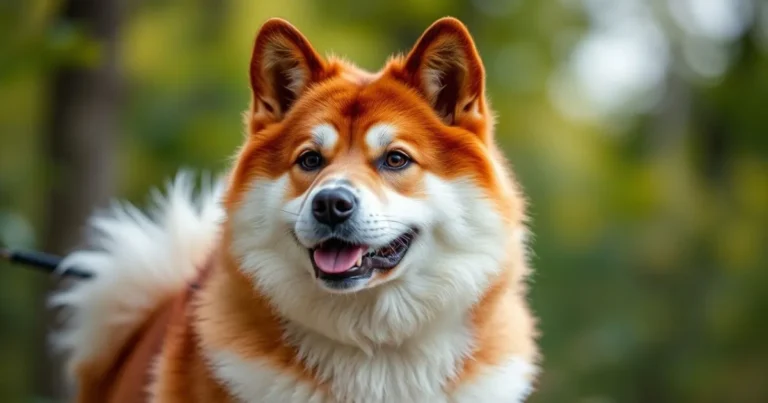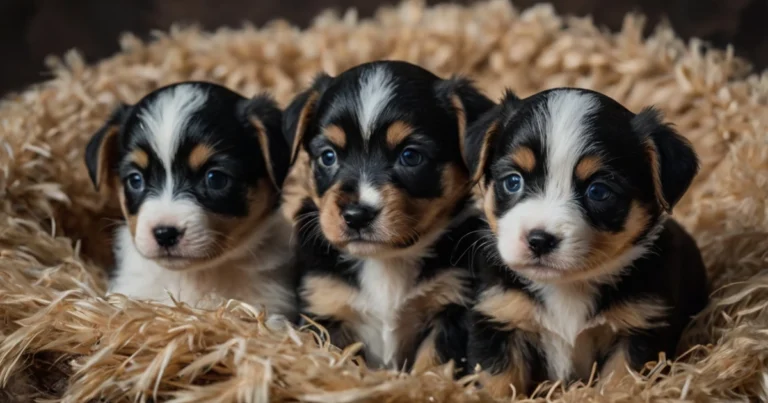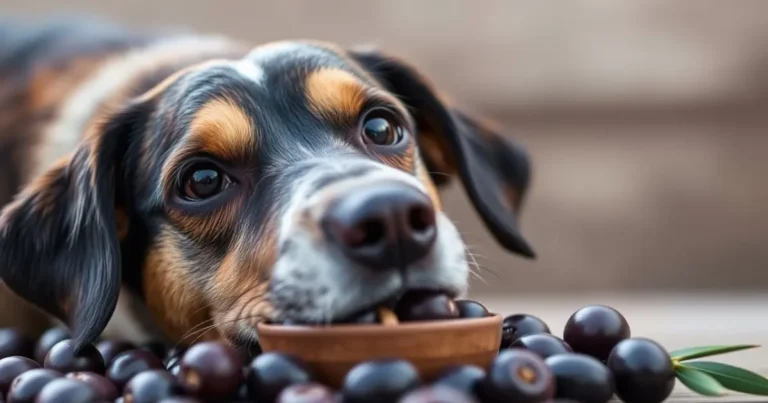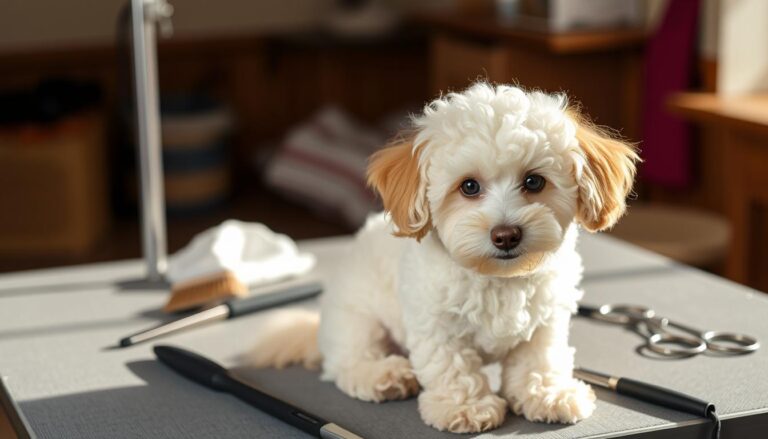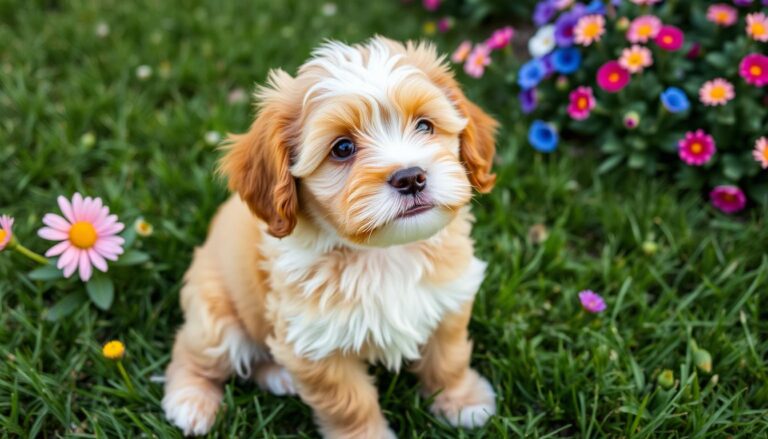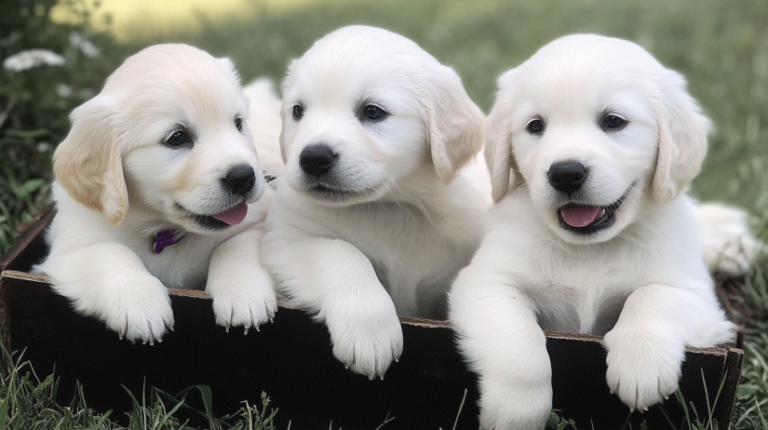Poochon Puppies: 7 Positive & Enchanting Secrets
Introduction
Imagine coming home to a bright-eyed, fluffy pup bouncing on tiny paws, tail wagging like it could power a small engine. That’s the experience many new owners enjoy with poochon puppies—an endearing designer mix that packs the Bichon’s sunny disposition and the Poodle’s lively intelligence into a portable, curly-haired package. If you’ve spent time with a Bichon Frise or a Poodle, you already know each breed can fill a room with heartwarming charm. Combine them and you get double the fun.
Yet, as irresistibly cute as poochon puppies can be, adopting one isn’t purely about cooing at a fuzzy face. From adequate exercise and specialized grooming routines to consistent training and health checkups, you’ll need to consider a variety of factors before bringing a Poochon home. In this extensive guide, we’ll explore the breed’s origin, day-to-day care, potential health issues, and whether poochon puppies truly live up to the hype. Let’s jump in together and find out if these pint-sized fuzzballs could be your perfect companion.
A Quick History of Poochon Puppies
Designer Dog Trend
Over recent decades, “designer” or hybrid breeds have surged in popularity, and poochon puppies are a prime example. While the Bichon Frise has a storied background in European nobility circles, the Poodle has likewise garnered fame for its intelligence and hypoallergenic coat. Breeders decided to merge these two toy or small-size lines to create a dog that retained the best qualities of each parent—such as the Bichon’s gentle, playful spirit and the Poodle’s smarts and curly coat.
Not AKC-Recognized (Yet)
Though adored by many, poochon puppies aren’t recognized by major kennel clubs like the American Kennel Club (AKC), which only registers purebred lines. Nonetheless, some hybrid registries do list Poochons, and many families prize them as loyal, low-shedding companions. With increasing interest in these curly cuties, there’s a solid chance Poochons will continue to make a name for themselves in the broader dog world.
The Bichon-Poodle Connection
Bichons and Poodles share an important trait: a hair-like coat that often sheds minimally. By combining these coats, breeders aim to reduce allergy triggers for some owners (though no dog is entirely hypoallergenic). Beyond coat qualities, Bichons bring a sunny, social attitude, while Poodles add an inquisitive, trainable edge. Together, these attributes help poochon puppies shine in various roles, from cheerful lapdogs to lively therapy canines.
Physical Characteristics
Size and Weight
Because poochon puppies generally come from Toy or Miniature Poodle lines, they’re typically quite small. Adult Poochons often weigh between 6–18 pounds, standing roughly 9–15 inches tall at the shoulder. That said, factors like genetics or an oversize parent could produce slightly larger or smaller pups.
Coat Types
- Curly or Wavy: Often inheriting more from the Poodle, producing a tighter curl.
- Soft, Fluffy: Leaning toward the Bichon’s plush texture.
Most poochon puppies have a double-layer coat that’s thick, soft, and easily prone to matting if not brushed consistently. Colors include white, cream, black, brown, apricot, or even multi-color patterns. Although many owners note reduced shedding, minimal hair loss doesn’t guarantee absolute hypoallergenicity—some dander and saliva can still trigger allergies.
Facial Features
Poochons tend to sport round, dark eyes framed by curly fur. Their ears typically drop down but remain proportionate to their small heads. While muzzle length may vary depending on whether the Poodle or the Bichon genes dominate, expect a moderately short muzzle with a friendly, inquisitive expression. The overall impression is one of a petite, fluff-laden dog with a playful twinkle in its eye.
Table: Growth Stages for Poochon Puppies (Approximate)
| Age | Weight Range (lbs) | Developmental Milestones |
|---|---|---|
| 8–10 Weeks | 2–4 | Transition to new home, early socialization, intro to crate |
| 3–4 Months | 4–8 | Teething, basic obedience, building confidence |
| 6–7 Months | 6–12 | Adolescent phase, refining house-training, more stamina |
| 1 Year | 6–18 (varies widely) | Approaching adult size, advanced commands, coat changes |
| 2 Years+ | Stabilized adult weight | Fully mature, consistent temperament, final coat texture |
Personality & Temperament
Gentle and Sociable
One hallmark of poochon puppies is their innate friendliness. They typically relish meeting new people (and other dogs), bounding up to say “hello” with puppyish enthusiasm. Their natural inclination toward social bonding makes them lovely therapy dogs or beloved family pets. However, early socialization ensures that outgoing spirit remains calm and well-adjusted—without developing clinginess or separation anxiety.
Smart and Trainable
Both Bichons and Poodles rank high in intelligence, so you can expect poochon puppies to pick up new commands with relative speed. They aim to please and thrive under positive reinforcement, quickly mastering basic obedience skills like sit, stay, and come. This intelligence cuts both ways: a bored or under-challenged Poochon may develop creative ways to entertain itself—like rummaging through laundry or barking at passersby—unless you provide mental stimulation.
Playful Yet Companion-Oriented
Because of their smaller frames, poochon puppies don’t typically require hours of intense physical activity each day. Still, they do enjoy short spurts of playtime, interactive puzzles, and daily walks. Once their energy is spent, they love nothing more than curling up on your lap or by your feet. For owners seeking a playful companion that transitions seamlessly into cuddle mode, Poochons can be a perfect match.
Family-Focused
In a family setting, poochon puppies often attach strongly to a single caretaker but remain cheerful with everyone. They can do well with children if respectful boundaries are taught on both sides. Because of their small size, younger kids must learn to handle Poochons gently to avoid accidental injuries. With consistent training and socialization, these pups generally become sociable additions to multi-person households.
Bringing Home Poochon Puppies
Choosing a Breeder or Rescue
As with any dog adoption or purchase:
- Ethical Breeders: Seek out breeders who emphasize health testing, such as checking for patella luxation and eye issues. They should allow you to meet the puppy’s parents (or at least the mother) and see where the pups are raised.
- Rescue Organizations: Many “doodle”-style dogs, including poochon puppies, occasionally appear in local shelters or breed-specific rescues. You might find an older dog that already has some training.
Regardless of source, ask detailed questions about medical records, socialization efforts, and any known genetic predispositions. The best breeders or rescue coordinators want a strong match between puppy and owner.
Puppy-Proofing Your Home
Before your poochon puppies arrive:
- Designated Sleeping Area: A cozy crate or bed in a quiet space fosters comfort.
- Safe Toys: Soft chew toys, squeakers, or puzzle feeders help alleviate boredom.
- Block Off Hazards: Use baby gates, store cleaning supplies on high shelves, tuck away cords, and remove breakables from low shelves.
- Arrange for Potty Breaks: Plan frequent outdoor visits (or puppy pad use) to develop good potty habits from day one.
Daily Care for Poochon Puppies
Nutrition and Feeding
Small dogs often have fast metabolisms. poochon puppies benefit from high-quality puppy formulas specifically crafted for small breeds, ensuring they receive vital nutrients without risking overfeeding. Watch portion sizes—these pups can gain weight quickly if indulged in too many treats or table scraps. Typically, feeding 3 meals a day until about 6 months, then switching to 2 daily meals, suits most Poochons.
Exercise Needs
While poochon puppies won’t typically join you on 10-mile hikes, they still need regular activity to burn energy:
- Short Walks: A 15–20 minute stroll, once or twice daily, is a good baseline.
- Play Sessions: Indoor fetch, hide-and-seek, or short chasing games keep them engaged.
- Puppy Classes: Socializing with other pups in a safe environment fosters mental stimulation.
Avoid lengthy, strenuous exercise that could stress tiny joints or cause exhaustion. Follow your puppy’s cues—if they’re panting heavily or lagging behind, it’s time to rest.
Grooming Essentials
Because of their curly or wavy coats, poochon puppies require consistent grooming:
- Brushing: Daily or every other day to prevent tangles, especially if the coat leans more toward the Poodle’s tight curl.
- Bathing: About once a month (or as needed) with mild dog shampoo; overbathing can dry out skin.
- Professional Trims: Many owners schedule grooming appointments every 4–8 weeks to maintain a neat, manageable “teddy bear” or “puppy” clip.
- Nail Trims: Overgrown nails cause discomfort, so clip them every 2–4 weeks.
- Ear Cleaning: Floppy or hairy ears can trap moisture, leading to infections. Gently clean with vet-approved solutions if you notice wax or odor.
Training & Socialization
poochon puppies generally thrive under positive reinforcement:
- Short, Reward-Based Sessions: Use treats or praise to reinforce desired behaviors.
- Crate Training: Encourages good potty habits and provides a den-like safe zone.
- Early Socialization: Introduce them to diverse people, gentle children, other animals, and different environments.
- Focus on Problem Behaviors Early: If they bark excessively or show timid behaviors, addressing these quickly prevents them from becoming entrenched.
Because they’re bright, bored Poochons can create chaos with excessive barking or chewing. Keep them mentally stimulated with puzzle toys, “find the treat” games, or short agility exercises.
Health Considerations
While crossbreeding can sometimes reduce certain purebred issues, poochon puppies still may inherit vulnerabilities:
- Patellar Luxation: Slipping knee caps can cause lameness or skipping gaits in smaller breeds.
- Dental Issues: Overcrowded teeth or gum disease might arise due to small jaws.
- Eye Disorders: Bichons can pass along cataracts or other ocular problems.
- Ear Infections: Warm, curly ear canals are prone to moisture buildup—hence the importance of cleaning.
Stay on schedule with vaccinations, parasite control, and annual wellness visits. Spaying or neutering around 6–12 months (per your vet’s advice) can mitigate certain behaviors or health risks, though opinions vary on the ideal timing.
Integrating Poochon Puppies Into Your Lifestyle
Apartment vs. House Living
Small size typically makes poochon puppies well-suited to apartments, provided you fulfill their daily exercise and mental stimulation needs. They rarely require a large yard, though they enjoy safe outdoor time to sniff around. Potential noise concerns: untrained Poochons can bark at hallway noises, so consistent training helps maintain neighborly relations.
Family Environment
Because of their gentle nature, poochon puppies are generally safe around children who respect their boundaries. Younger kids should learn how to handle small dogs carefully—no rough grabbing or accidental dropping. With supervision and positive experiences, Poochons often become adoring companions for children, participating in lively but gentle play.
Multiple-Pet Households
poochon puppies usually adapt well to living with other dogs or even cats, especially when introduced at a young age. Their friendly demeanor and moderate energy typically cause fewer conflicts than more territorial breeds. Make sure to supervise early interactions, ensuring older pets don’t inadvertently harm such a small pup and that your Poochon knows how to respect established pets’ personal space.
Travel Companions
Another perk of having poochon puppies is how easily they travel. They can accompany you on family road trips or errands, especially if they enjoy car rides. Crate-training your Poochon for travel helps them feel secure, while providing you with peace of mind. Keep safety top of mind—use a dog seat belt harness or a well-ventilated travel crate for longer journeys.
Real-Life Case Studies
Case Study 1: Bella the Therapy Dog
Bella’s family noticed her innate calmness and affectionate nature from puppyhood. As a poochon puppy, Bella thrived in busy environments, never shying away from people or unusual noises. After completing basic obedience, her owners enrolled her in therapy dog courses, building on Bella’s natural empathy. Today, Bella visits local senior centers weekly, where her soft coat and endearing presence bring smiles and comfort to residents who look forward to her gentle cuddles.
Case Study 2: Max’s Agility Adventures
Max was a slightly more spirited, high-energy poochon puppy, prompting his owner to channel that energy into agility classes at six months old. Though smaller than many agility participants, Max’s intelligence and willingness to please made him a quick study on hurdles and weave poles. Within a year, he was competing in local fun-run agility meets, delighting onlookers with his speed and unwavering enthusiasm.
FAQs
What size do Poochons reach once fully grown?
They usually weigh 6–18 pounds, standing 9–15 inches tall. poochon puppies inherit size from Toy or Miniature Poodle plus Bichon lines. Balanced feeding and activity ensure an optimal adult build.
Do Poochon coats really reduce allergies?
They often shed minimally, thanks to Poodle genes. poochon puppies can lessen allergic reactions, but results differ by person. Always meet the pup beforehand to gauge your comfort level.
Do Poochons require extensive daily workouts?
Not typically, though they enjoy brief, engaging activities. poochon puppies thrive with walks, fetch, or puzzle toys for 30–60 minutes a day. Keep sessions fun but not overly strenuous for their small frames.
Do Poochons pick up commands quickly?
They often excel at training, thanks to their parent breeds’ intelligence. poochon puppies love pleasing you and thrive under positive reinforcement. Patience, treats, and simple instructions foster fast progress.
Are Poochons prone to loud barking?
Some Poochons vocalize at new sights or sounds. poochon puppies benefit from early boundaries around barking habits. Positive reinforcement encourages calm behavior and reduces nuisance noise.
Will a Poochon’s coat require constant upkeep?
You’ll need consistent brushing, especially if the coat is very curly. poochon puppies can develop tangles quickly without routine care. Seasonal trims with a pro groomer also help maintain a tidy coat.
Conclusion
poochon puppies merge the warm, sociable charm of the Bichon Frise with the bright wit and hypoallergenic promise of the Poodle. Whether you’re in need of a gentle cuddle buddy, a playful companion for your kids, or a small dog that can handle some mental challenges, Poochons often rise to the occasion with tail-wagging enthusiasm. Yet, like any breed, they need your commitment: from keeping up with grooming tasks and staying consistent in training, to providing them with daily affection, exercise, and mental puzzles. If you’re prepared to invest in a loving, curly sidekick with plenty of adorable quirks, look no further than poochon puppies. Ready to share your experiences or chat about Poochons? Drop a comment below, and let’s celebrate all things small, fluffy, and full of personality!
For more guidance on dog adoption and responsible pet care, visit the
ASPCA (American Society for the Prevention of Cruelty to Animals). They provide valuable resources on animal welfare, spay/neuter services, and ensuring your new puppy adapts well to family life—perfect for anyone exploring the adoption or purchase of poochon puppies.


